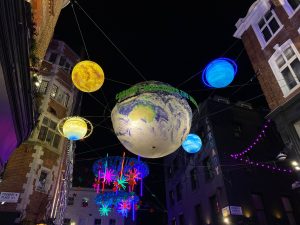HANS STOISSER
Europe’s Handling of African Migration

Paper from Hans Stoisser, published in Europäische Briefe of the European Society Coudenhove-Kalergi on December 15th, 2016
Europe’s Handling of African Migration
If we develop a clear picture of the situation, a strategy will almost become self evident
From a European perspective, Africa is a continent of chronic warfare and disease, crises, catastrophes, corruption, crime, and the exodus of capital. Small wonder – we Europeans then think – that hundreds of millions of Africans are pushing towards Europe. In turn, we are afraid, and some of us feel existentially threatened. We then wonder about how to counteract this; should we close the borders and seal ourselves off? And should we spend development money to fight the causes of emigration?
Closing borders and giving development aid?
Looking towards sub-Saharan Africa with its average annual per-capita income of 4.000 Euros, we, with an average of 30.000 Euros, see poverty. Yet we do not see that income in these African countries has multiplied twofold, even threefold in some cases, over the last two decades. We do not see that the fraction of African people living in absolute poverty has, according to the World Bank, been reduced from two thirds in 1990 to one third in 2015. Nor do we see that, in spite of increasing population numbers, the total number of poor people is sinking, or that in some African cities, income levels are now similar to those of Southern and Eastern European countries.
Networked global society
Not grasping these positive developments, we label migrants from Africa as “poor.” We believe that they are coming because they are increasingly destitute, when, in fact, they are coming because they are now less poor and seeking their fortunes in other parts of the world. For the first time in history, they do have this opportunity. It is part of the nature of a networked global society that improvements in people’s material conditions lead to increases in mobility and migration, at least, as studies show, in societies with average incomes of up to 8000 to 10000 Euros.
Urban middle class
It almost seems as if Europe is unwilling to realize that globalization and its ensuing division of labour across the world have dynamic effects, have made Africa part of worldwide value creation chains, and push back the most destitute poverty of Africa’s poorest. Instead, Europe sees a rural exodus, and the poor in the slums of Africa’s cities, and is unwilling to understand the massive opportunity that stems from the continent’s urbanization. Fortunately, however, Africa now boasts of 50 cities over a million inhabitants. There, an urban middle class has emerged that has direct access to the global communications- and knowledge society. This middle class has in some places become large enough to be a critical mass in determining its countries’ future. Yet we still take the poor African subsistence farmer as our model for development, and overlook how digitalization has allowed completely new models to emerge.
To begin with, mobile telephone services have in a short span of years provided access to far-reaching communications to millions of people. Even more quickly then, so-called mobile banks have built on this technology and thus given these people access to the wider economy. Both of these developments are basic prerequisites for any modern economic activity.
Eastern Africa thus has become a world leader for mobile payment services. Anybody who has tried and experienced the user friendliness of the mobile banking services provided by M-Pesa, the Kenyan market leader in this field, will have to wonder why Austrian bank managers, plagued by crises as they are, don’t go to Kenya in order to learn from African know-how.
Tradition and modernity
Something that is unique to our neighbouring continent is the simultaneity of different periods of development. Traditional societies and modernity exist side-by-side and generate a richness of innovation and creativity. Africa is the first continent on which the mobile telephone has from the outset played a major role in problem solving, ranging from the fields of education and health to the distribution of energy. Hundreds of thousands in Eastern Africa have been provided with smart solar collectors, which use a SIM-card to connect to mobile telephone networks. Mini-grids, fed by solar or wind-driven power plants, are emerging in large numbers. Modern block-chain software is fuelling the race to develop the future standard and platform for smart electricity grids.
Dealing with mobility and migration
As Europe is stumbling and tumbling from one crisis into the next, it fails to see the positive developments on its neighbouring continent. The networked global society is pointing the way. It has taken a constant of human history – increasing division of labour and growing networks – and elevated it onto a global level. This not only allows 7.2 billion humans today and 9.5 billion people in the future to live, but offers ever more people in this world the opportunity to live their lives with dignity and purpose. In its inclusive institutions and its model of an open society, Europe has created the essential foundations for this global society.
If Europe one day remembers its own self, and again recognizes its positive role in the world, the basic strategy for dealing with mobility and migration becomes – almost – self evident: to protect our own institutions here, and to fan out and network with people and organisations there, in the countries of Africa and everywhere else in the Non-Western world.
Hans Stoisser has been building infrastructure in Africa for more than 30 years. Since 1992 he has been leader of the management consultancy ECOTEC, which has been active in, among others, Bulgaria, Palestine, Brazil, and especially in African countries. In his book Der schwarze Tiger, the economist Stoisser explains why Europe has missed the transition in Africa, what is now left to do, why development aid does not help against the refugee problem, and what we can learn from Africa.
from Hans Stoisser:
Der schwarze Tiger – Was wir von Afrika lernen können
Kösel Verlag, 2015 ISBN 978-3-466-37125-9




